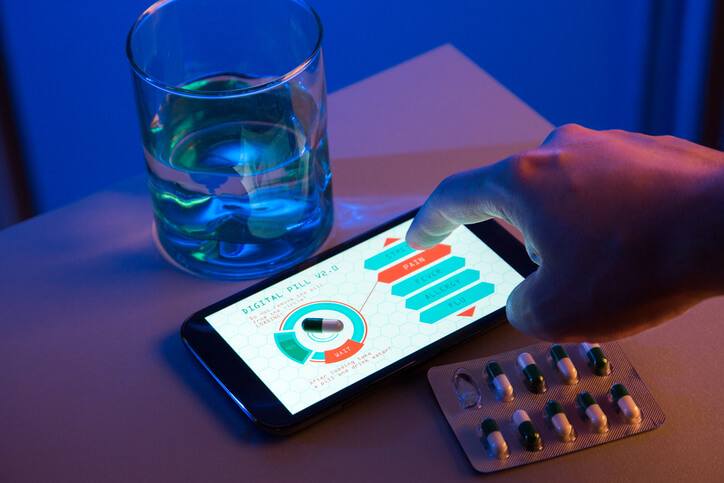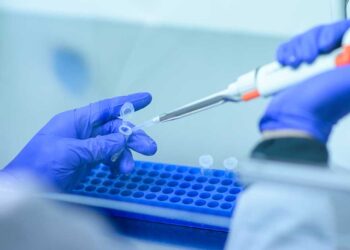Imagine a world where your healthcare is not a one-size-fits-all solution but a deeply personal, customized strategy based on your unique genetic makeup, lifestyle, and environment. This is the promise of personalized medicine, a revolutionary approach to healthcare that is transforming how we diagnose, treat, and prevent diseases. By leveraging advanced technologies like genetic sequencing, artificial intelligence (AI), and data analytics, personalized medicine is moving us away from generalized treatments and toward targeted interventions that are more effective, less invasive, and have fewer side effects. This comprehensive article will delve into the science behind this groundbreaking field, its current applications, and the exciting possibilities that lie ahead, offering a glimpse into a future where medicine is truly tailored to you.
The Foundational Pillars of Personalized Medicine

Personalized medicine is a complex and multidisciplinary field built upon several core scientific and technological advancements. It’s the convergence of these pillars that makes this approach not only possible but also increasingly precise.
A. Genomics and Genetic Sequencing: At the heart of personalized medicine is the human genome. Our genes contain the blueprint for our bodies, and variations in this blueprint can influence our risk for certain diseases, our response to medications, and our overall health. The dramatic drop in the cost of genetic sequencing has made it possible to analyze a person’s entire genome, providing an unprecedented amount of data for doctors to work with. This allows them to identify specific genetic markers that may indicate a predisposition to conditions like cancer, heart disease, or diabetes.
B. Pharmacogenomics: This is a specialized field that studies how a person’s genes affect their response to drugs. What works for one person might be ineffective or even harmful to another. By analyzing a patient’s genetic profile, doctors can predict how they will metabolize a specific drug, allowing them to prescribe the right medication at the right dose from the very beginning. This reduces the risk of adverse drug reactions and increases the effectiveness of treatment, particularly in areas like oncology and psychiatry.
C. Biomarkers: Biomarkers are biological molecules found in blood, tissue, or other body fluids that indicate a specific disease state or condition. In personalized medicine, these biomarkers are used to identify subtypes of diseases that may require different treatments. For example, in oncology, certain tumors have specific biomarkers that can be targeted with a particular drug, leading to a much higher success rate than a general chemotherapy regimen.
D. Data Analytics and AI: The sheer volume of data generated by genetic sequencing and other diagnostic tools is too vast for humans to process alone. This is where AI and machine learning come in. These technologies can analyze complex datasets to identify patterns and correlations between genetic markers, lifestyle factors, and disease outcomes. AI can help doctors make more informed decisions, predict disease progression, and even discover new drug targets.
E. Advanced Diagnostic Tools: Beyond genetics, personalized medicine also relies on sophisticated diagnostic tools, such as advanced imaging techniques and liquid biopsies. These tools can provide real-time information about a patient’s health, allowing for earlier and more accurate diagnoses. A liquid biopsy, for example, can detect cancer DNA in a simple blood test, often before a tumor is large enough to be seen on a scan.
Current Applications and Clinical Impact
Personalized medicine is not a futuristic concept; it’s being applied in clinical settings today, with a profound impact on patient care. Its most significant applications are currently in the fields of oncology, infectious diseases, and mental health.
A. Oncology (Cancer Treatment): Cancer is arguably the most personalized of all diseases. We now know that a “one-size-fits-all” approach to cancer treatment is often ineffective. Personalized medicine has revolutionized oncology by allowing doctors to:
* Targeted Therapies: Identify the specific genetic mutations driving a patient’s tumor and prescribe a drug that targets that mutation. This leads to higher success rates and fewer side effects compared to traditional chemotherapy.
* Immunotherapy: Use a patient’s own immune system to fight cancer. Personalized immunotherapy treatments can be designed to recognize and attack the unique characteristics of a patient’s tumor.
* Risk Assessment and Prevention: Analyze a person’s genetic risk for certain types of cancer, such as breast cancer (BRCA mutations), and recommend proactive screening or preventive measures.
B. Infectious Diseases: In the fight against infectious diseases, personalized medicine can help doctors:
* Guide Antibiotic Prescriptions: Analyze a pathogen’s genetic makeup to determine which antibiotics it will respond to. This is crucial in the battle against antibiotic resistance.
* Predict Treatment Response: In diseases like HIV or Hepatitis C, genetic analysis can predict how a patient will respond to certain antiviral drugs, allowing doctors to choose the most effective treatment plan.
C. Mental Health and Psychiatry: The field of psychiatry is still largely based on trial and error when it comes to medication. Pharmacogenomics is changing this by:
* Guiding Drug Selection: Analyzing a patient’s genes to predict their response to antidepressants and antipsychotic medications. This can reduce the time it takes to find an effective treatment and minimize side effects.
* Dosage Optimization: Determining the ideal dosage of a medication based on how an individual’s body metabolizes it, preventing under-dosing or toxicity.
D. Rare and Genetic Diseases: Personalized medicine is also a lifeline for patients with rare genetic diseases. By sequencing a patient’s entire genome, doctors can often identify the specific genetic mutation responsible for their condition, which can lead to a more accurate diagnosis and, in some cases, the development of a highly targeted treatment.
Challenges and Ethical Considerations

While the promise of personalized medicine is immense, its widespread adoption faces several challenges and raises important ethical questions that need to be addressed.
A. Data Security and Privacy: The use of genetic and health data raises significant concerns about privacy. Who owns this data, and how can we ensure it is protected from misuse by insurance companies, employers, or other entities? Robust regulations and ethical guidelines are essential.
B. Cost and Accessibility: The cost of genetic sequencing and targeted therapies, while decreasing, is still a barrier for many. There is a risk that personalized medicine could create a two-tiered healthcare system where only the wealthy can afford the most advanced treatments. Ensuring equitable access to these technologies is a critical challenge.
C. Regulatory Hurdles: The regulatory process for personalized therapies and diagnostic tools is complex. The traditional approval process for drugs, which is based on large-scale clinical trials, may not be suitable for highly targeted therapies that only apply to a small number of patients.
D. Education and Training: Doctors and other healthcare professionals need to be trained in genomics and data science to effectively utilize the tools of personalized medicine. The medical curriculum must evolve to keep pace with these rapid advancements.
E. Ethical Dilemmas: The ability to predict a person’s risk for a disease raises profound ethical questions. Should a person be informed of a genetic predisposition to a condition for which there is no cure? What is the psychological impact of this knowledge? These are difficult questions that society must grapple with as the technology becomes more prevalent.
The Future of Personalized Medicine
Looking ahead, the future of personalized medicine is not just about treating diseases but about preventing them. It’s a vision of proactive, predictive, and precision healthcare that empowers individuals to take control of their health.
First, we will see the widespread use of wearable devices and sensors that collect real-time health data, from heart rate and sleep patterns to blood glucose levels. This data, combined with a person’s genetic information, will provide a complete picture of their health, allowing for early detection of potential problems.
Second, the integration of AI will become even more sophisticated. AI-powered diagnostic tools will be able to analyze medical images, genetic data, and a patient’s symptoms to provide an accurate diagnosis in a fraction of the time it takes today. AI will also play a key role in drug discovery, identifying new therapeutic targets and accelerating the development of new medications.
Third, the concept of “digital twins” will emerge. A digital twin is a virtual model of a patient’s body, created using their genetic data, health records, and real-time sensor data. Doctors can use this digital twin to simulate different treatment plans and predict the outcome, allowing them to choose the best course of action without ever having to experiment on the patient.
Finally, the democratization of health data will empower individuals. Patients will have greater access to their own health information, and they will be able to participate more actively in their own healthcare decisions. Personalized medicine will move from being a doctor-driven process to a collaborative one, with the patient at the center.
Conclusion
Personalized medicine represents a seismic shift in healthcare, moving us from a reactive, generalized approach to a proactive, highly specific one. It is a field driven by the incredible power of genomics, AI, and data, and it holds the key to a future where medical treatments are not only more effective but also safer and more humane. While there are significant challenges to overcome, from ethical dilemmas to issues of accessibility, the trajectory of this field is clear. We are on the cusp of a new era where medicine is not just for the masses but for the individual.
The ultimate goal of personalized medicine is not simply to treat sickness but to cultivate wellness. By understanding our unique biological makeup, we can make informed decisions about our diet, lifestyle, and preventive care, thereby preventing diseases before they even begin. This is a future where healthcare is a collaborative partnership between doctor, patient, and technology—a future where every treatment is a perfect fit. The promise of personalized medicine is a promise of better health for all, a world where the science of medicine is as unique as the people it serves. The journey is long and complex, but the destination is a healthier, more predictable, and more personalized future for all.











Discussion about this post